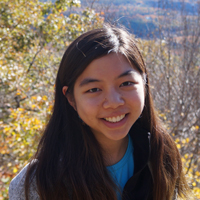Growing up in Silicon Valley, Lillian Tsai had always assumed that a normal career path for a computer scientist involved working at a company or, perhaps, launching a start-up. That was the path that she imagined for herself when she enrolled at Harvard University and chose to major in computer science.
Lillian credits her interest in research to an exciting systems course that she took with Professor Eddie Kohler. To her surprise, Dr. Kohler reached out to Lillian at the end of the term to invite her to work on research. She enthusiastically accepted this offer and subsequently worked with Professor Kohler for two academic years and two summers.
Initially, Lillian worked on an existing project exploring Software Transactional Memory (STM). Through this project, Lillian learned about some aspects of the systems field and got a sense for the research process. Over the following years, much of Lillian’s research centered on understanding and developing concurrency control mechanisms for software systems in order to enable programmers to more easily write concurrent code. This work led to Lillian’s senior thesis and a publication that appeared in Eurosys 2016.
Reflecting on her favorite aspect of research, Lillian describes the enjoyment she drew from the intellectual and technical challenges of working on an open-ended problem. She enjoyed working at Harvard’s Maxwell Dworkin computer science building where she could interact with graduate students and other researchers. Lillian appreciated the flexibility that research provides in “the freedom to change our questions when we encountered new problems”. Lillian’s advice to other students is: “Be patient – it can take months or even years to really know enough to tackle the interesting problems, but it’s worth it once you can.”
Lillian has graduated from Harvard and continues to pursue research on a Fulbright Research Fellowship at the Max Planck Institute for Software Systems in Saarbrücken, Germany.
– Written and edited by Booma S Balasubramani and Keith Feldman
